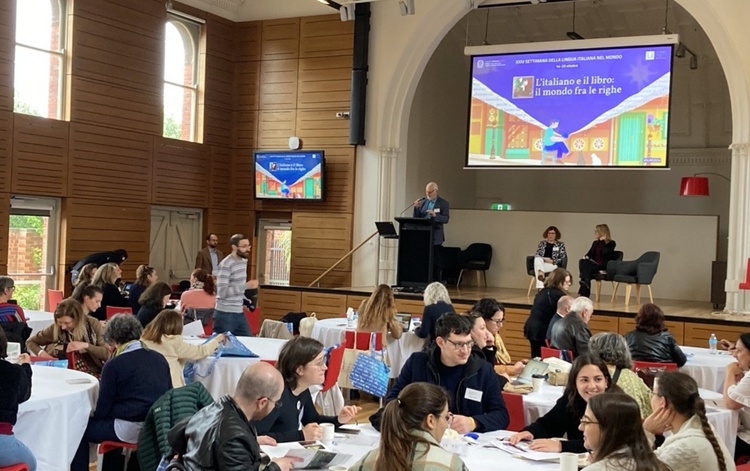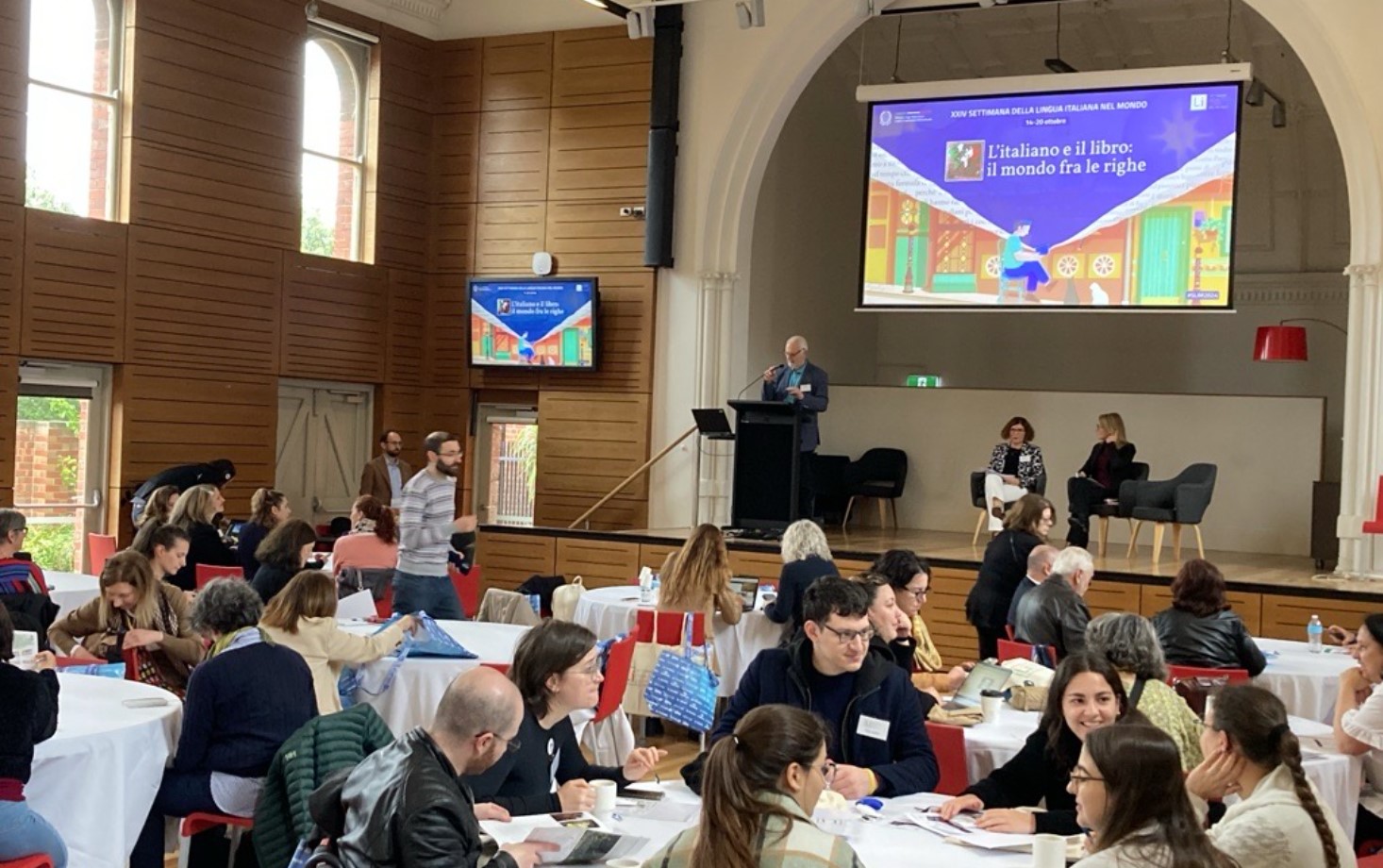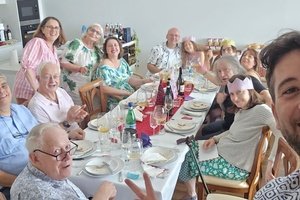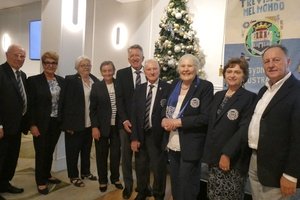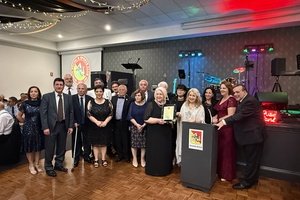MELBOURNE - This event provided educators with training and networking opportunities, as well as moments of reflection and practical workshops to be applied in the classroom.
After introductory remarks from Ferdinando Colarossi, President of VATI (the Victorian Association of Teachers of Italian), Valentina Biguzzi, the head of Education and Culture at the Italian Embassy in Canberra and the event’s organiser, greeted everyone and played a video message from Italian Ambassador Paolo Crudele.
The ambassador reminded the audience that this year’s theme, Italian and the Book: The World Between the Lines, links language with literature, places in the hands of teachers an essential role.
“[You have the role of] promoting reading as a tool for knowledge development, education and social, civil and economic progress,” he told them.
“Our priority is to promote and support the Italian language through its literary works.”
During her address, Italian Consul General in Melbourne, Chiara Mauri, highlighted that over 100,000 students choose to study Italian each year in Australia, where it is the fourth most popular language.
She emphasised that Italian is a “vehicle of culture, history and identity” and expressed her gratitude to teachers for their dedication and passion.
The first speaker, Professor Anna Antoniazzi from the University of Genoa, discussed the theme of Narrated Worlds Between Utopia, Reality and Dystopia commonly found in children’s literature.
Antoniazzi explained that literature for young people, from infancy to 18 years of age, often includes these three elements.
Utopian themes are commonly found in literature for the youngest readers, offering opportunities for self-discovery and language immersion through rhymes and musicality.
Books for children aged nine to twelve often focus on themes of friendship, school and relationships with adults, even covering topics like environmental sustainability.
These books enable young readers to engage with others’ experiences and empathise with protagonists.
For pre-teens and teens, dystopian themes have grown prevalent, especially since 2010, presenting young protagonists in ruined worlds where they must rebuild society according to their values.
Biguzzi returned to the stage for the significant announcement of the Premio Italia winner, a competition for university students of Italian who submit a literary piece exploring the theme of Italian Language Week.
Among the 18 participants, Mitchel Contessi was awarded a $2000 travel voucher, sponsored by the Italian Cultural Institute in Sydney, for his piece Da un sogno (From a dream).
Contessi, born in 1989, is an aspiring Italo-Australian writer who discovered his passion for Italian literature and culture through writing.
A languages and linguistics student at Griffith University in Queensland, Contessi has nurtured a deep interest in reconnecting with his cultural heritage.
Biguzzi read from Mitchel’s work: “[The story] Da un sogno draws inspiration from the works of Italo Svevo, Dino Buzzati, Cesare Pavese, and Italo Calvino,” she explained.
“It tells of a protagonist, much like the author, who seeks meaning in dreams and ancestry.
“It’s about finding one’s destiny, the courage to pursue it and, in part, what it might mean to be Italian.”
The second speaker, Letizia Cingarotto, a language didactics teacher and Head of International Relations at the University for Foreigners in Perugia, spoke on the theme of Italian and Books for Language, Culture and Teaching Between Print and Digital Media.
Cingarotto shared valuable teaching resources and discussed the integration of digital and print materials in second-language education as well as the progression from print to multimedia formats.
“Encouraging digital storytelling in the classroom is highly effective,” she said, “[It] intertwines various forms of communication and is both useful and engaging for students.”
The day continued with dedicated workshops tailored to both primary and secondary schools, where teachers shared their experiences with colleagues.
Sara Villella, head of the Italian Bilingual School (IBS) in Sydney, presented practical ways to bring Italian culture into the classroom.
Ornella Roveda, from the Italian Language Centre in Brisbane, led a workshop on Pimpa, the famous polka-dotted dog created by Tullio Altan.
Giulia Tomat of Ave Maria College in Melbourne provided many wonderful insights with her themed talk The Travels of Marco Polo, while Eros Scagnetti discussed the language policies and practices involved in teaching Italian in Western Australia.
